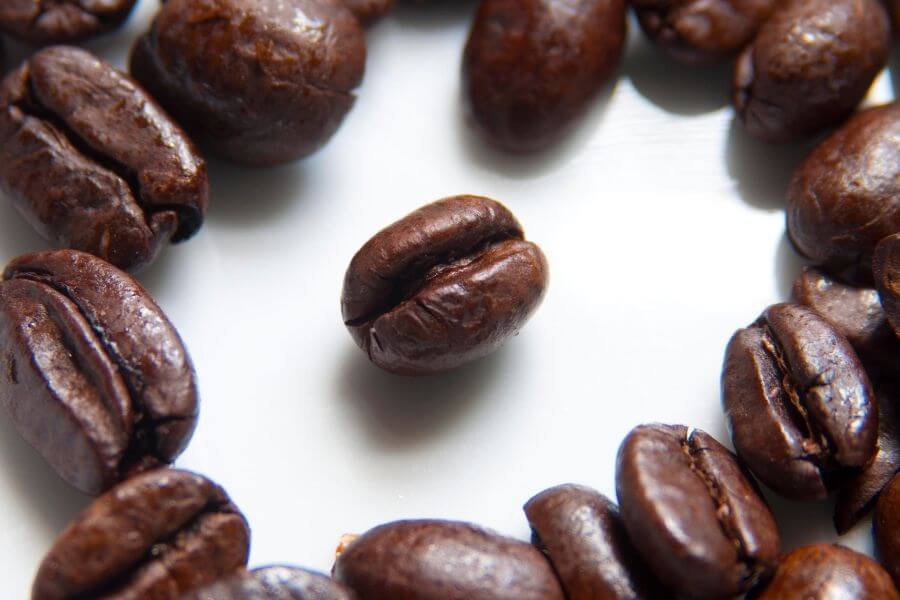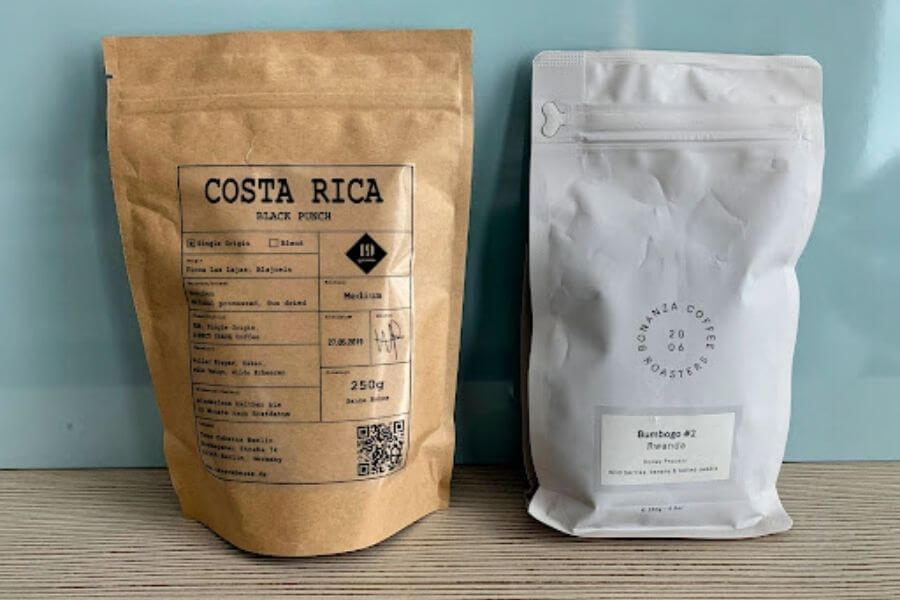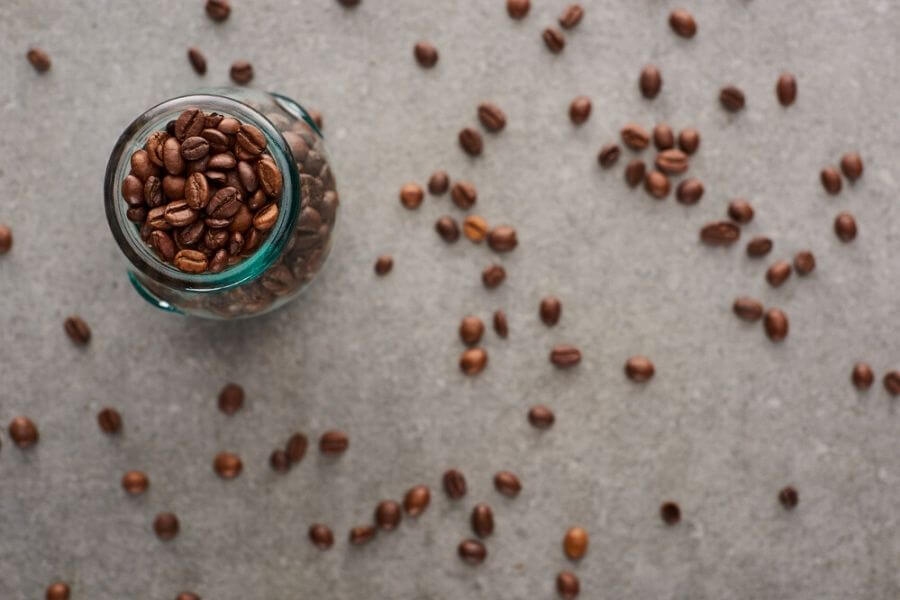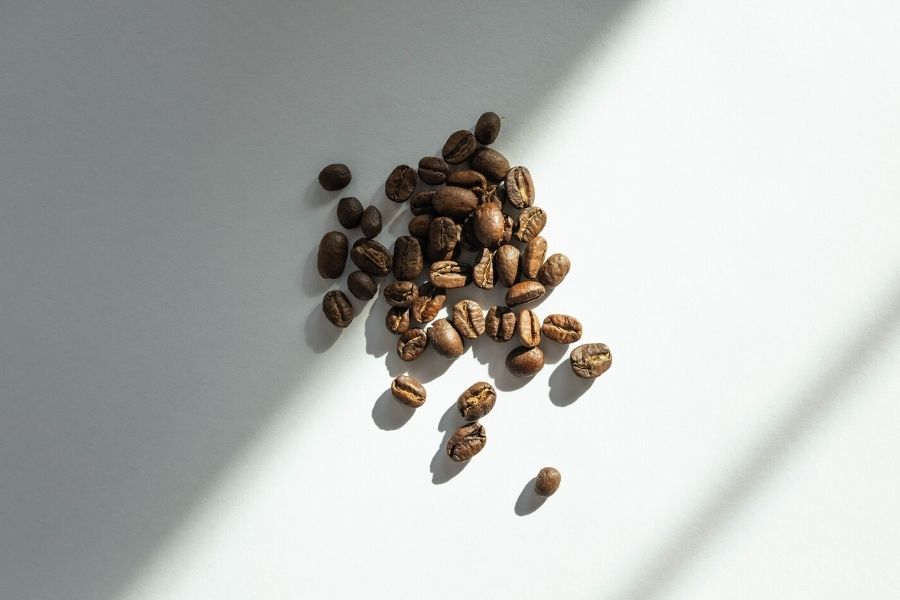Keep it Fresh & Flavorful: Top Tips for Storing Coffee Beans
There’s nothing better than the taste and aroma of a top-notch cup of joe, and it all begins with freshly ground coffee. But it’s not just about grinding. The best coffee starts with fresh beans.
Unfortunately, some of the most common methods of storing coffee beans don’t retain freshness. But if you know how to store coffee beans properly, they can stay fresh for up to four weeks.
Coffee beans don’t have expiration dates per se, but flavor and aroma start dissipating as soon as beans are roasted. Coffee beans dislike light, moisture, air, and heat — keep your beans away from these things and they’ll stay freshener for longer.
You’ve spent good money on quality beans, so it makes sense to maximize their potential. To that end, here’s what we cover in this article:
How Long Do Coffee Beans Last?
Fresh beans make better tasting java, and the clock starts ticking as soon as they’re roasted. Ideally, it’s a good idea to let the coffee rest for two to three days post-roasting and before you use it to maximize the flavors.
Do coffee beans go bad? Technically no, but once that bag is unsealed, the shelf life of coffee beans is about two weeks, four weeks at best. A sealed bag of coffee beans should have its roasting and best-by dates printed on the bag. This gives you a timeline to work with for freshness. Stale beans won’t do you harm, but the java won’t taste as good as it should.
Not sure if your coffee beans are still fresh? There are a few ways to tell:
- Smell them. Fresh beans should be very aromatic. The less they smell, the less fresh they are. If your previously non-oily beans develop glossy or oily residue, they’re past their best.
- Freshly roasted coffee beans release carbon dioxide. You can test this by placing a few beans into a plastic bag, removing excess air, and sealing it tightly. Let it sit overnight, if the bag has puffed up by morning, the beans are releasing carbon dioxide.
On a related note, if you find that your beans are stale, you don’t need to throw them out. Stale beans can be used to make cold brew. Steeping the beans overnight will coax the remaining flavors out of them.

Things that Affect Coffee Bean Freshness
There are four things that coffee beans do not like:
- Moisture
- Light
- Air
- Heat
Exposure to any of these will negatively affect your beans’ freshness. Exposure to all of them — well, just don’t do it, those beans are very sensitive!
Coffee absorbs the scents, tastes, and moisture present in the air, which affects how the brewed stuff will taste. As you’ll see, our tips for how to store whole coffee beans eliminate, or at least minimize, exposure to those factors.
Best Practices for Coffee Bean Storage
Now you know what’s bad for coffee beans, let’s take a look at the best way to store coffee beans. Here are our recommendations.
Keep Beans Airtight and Cool
Coffee beans start losing their freshness as soon as they’re exposed to air or heat. As for where to store coffee beans, choose a cool, dark location, such as your pantry.
It’s best to leave your bag of beans sealed until you’re ready to brew. After you open the bag and use some, reseal it if you can or use another airtight container.
Use Containers You Can’t See Through
Those clear containers that show off your favorite coffee beans might be aesthetically pleasing, but this is not how to store coffee beans once opened. Clear containers don’t keep beans as fresh as other non-transparent canisters.
Instead, use an airtight container that isn’t transparent. Your coffee beans will thank you for protecting them from light.
Buy Smaller Amounts More Often
Coffee beans are one thing that shouldn’t be purchased in bulk. Unless you drink massive quantities of java, or you need to supply your entire office, that huge bag of Colombian coffee beans will turn stale before you can brew that much coffee.
Instead, look at your coffee habits and estimate the volume of coffee beans you use in a two-week period. Buy that amount in whole beans. If you buy smaller packs of freshly roasted coffee more frequently, you’ll never have to endure java made from stale beans.
It may be more expensive to buy smaller amounts of coffee beans more frequently, but you would probably waste money replacing those bulk beans that went stale!

What About Freezing Coffee Beans?
Some people will insist coffee will last longer if it’s frozen. Others are somewhat horrified by the idea. While there’s no consensus on whether freezing has a positive or negative effect on beans, everyone agrees that if you freeze coffee beans, they must be in a completely airtight container.
Coffee beans can absorb odors, moisture, and even flavors from what’s around them, and that includes the contents of your freezer or refrigerator. Also, freezer burn can happen to items not sealed completely, and it will alter how your beans taste and smell.
So how long can you store coffee beans in a freezer? Unfortunately, there’s no definitive answer.
Buy Green Coffee and Roast Your Own Beans
Since coffee beans start losing their freshness almost immediately after roasting, what about roasting beans yourself? Most people don’t even realize that’s possible. However, you can buy green coffee, which is another name for raw, unroasted coffee beans, and roast your own as needed. That’s about as fresh as it gets. For more information about green coffee, check out this article.
It’s not a very popular idea, but roasting green coffee can be done with a popcorn machine, skillet, or oven. And of course, an actual home coffee roaster. Just know that there is a learning curve with roasting your own beans, so expect some trial and error to get it right.
But you don’t have to worry about how long roasted coffee beans last if you do the roasting yourself!
What Not to Do with Your Coffee Beans
Of course, any good list of tips should also include what not to do. Avoid these things so you don’t inadvertently sabotage your java:

- No matter how pretty those glass jars are, don’t use them to display coffee beans as beans don’t stay fresh as long when exposed to light. On a related note, don’t leave your beans by any windows.
- You might be tempted to just leave some whole coffee beans in the hopper for your grinder, but this is a no-go for two reasons: hoppers are clear, which means beans get too much light. And hoppers aren’t airtight, and air exposure affects beans.
- Don’t buy whole coffee beans in bulk. They’ll likely turn stale before you can use them. To go one step further, don’t buy coffee beans from large open displays in a grocery store. Beans in an open display have already been exposed to air, which just speeds up the process at which they lose freshness. Look for small packages, enough to last no more than two weeks.
- Coffee beans should be used as soon as possible after unsealing their bag.
How long do whole coffee beans last if you’re doing things on the don’t list? It’s hard to say exactly, but when stored properly coffee beans can last up to four weeks.
Some Final Thoughts
Since you care enough about coffee to buy the best whole coffee beans, make sure you’re storing them properly until you’re ready to grind and brew. Coffee beans start losing their aromatic and flavor qualities immediately after roasting, so it’s recommended that beans are used within two to four weeks after you unseal the bag.
Some of the most popular ways of storing coffee beans actually negatively affect beans. For example, storing coffee beans in a clear container on your kitchen counter gives those beans way too much light and heat, both of which are bad for coffee.
Buying smaller packages of freshly roasted coffee beans, and keeping them away from air, heat, light, and moisture will help you get the most from your joe.

Top Tips for Storing Coffee Beans FAQs
Should You Store Coffee Beans in the Fridge?
While you can store coffee beans in a fridge, we’re hesitant to recommend it. Coffee beans can absorb flavors, scents, and moisture from the air and even foods around them. If you keep beans in your refrigerator, your beverage may taste different.
Can You Store Coffee Beans in a Glass Jar?
Many people do store coffee beans in a glass jar, but it’s not recommended. Clear glass exposes them to light and heat, with both of those things speeding up the process of beans losing flavor and aroma.
How Long Do Whole Coffee Beans Stay Fresh?
You can expect coffee beans to remain fresh for at least two weeks after unsealing their bag. In the best coffee bean storage conditions, beans may remain fresh for up to four weeks, once their bag has been opened.
Is It Okay to Store Coffee Beans in a Plastic Bag?
It’s not a good idea to keep coffee beans in a plastic bag unless you can absolutely ensure it’s airtight. Exposure to air causes beans to go stale faster. Also, plastic bags are usually clear, which exposes them to light, another thing that negatively affects beans and their flavor.
Are 2 Year Old Coffee Beans Still Good?
Coffee beans do not technically go bad or expire, so it’s safe to use two-year-old beans. However, they’re almost certainly stale, which will affect the way they smell and taste. For a good cup of joe, buy some fresh beans!
How Long Do Coffee Beans Last Sealed?
A completely airtight, sealed bag of coffee beans can retain its full flavor and aroma anywhere from three months to a year. All the same, if the bag is opened, that time span dwindles quickly.
How Do You Know if Coffee Beans Are Stale?
The easiest way to know if coffee beans are stale is to smell them. If they don’t smell at all or they smell different than they should, those beans are stale. You can also vacuum seal some beans into a plastic bag, place it in a cool, dark location overnight, and then see if the beans have released any carbon dioxide. The bag will puff up if they have, which indicates freshness.





